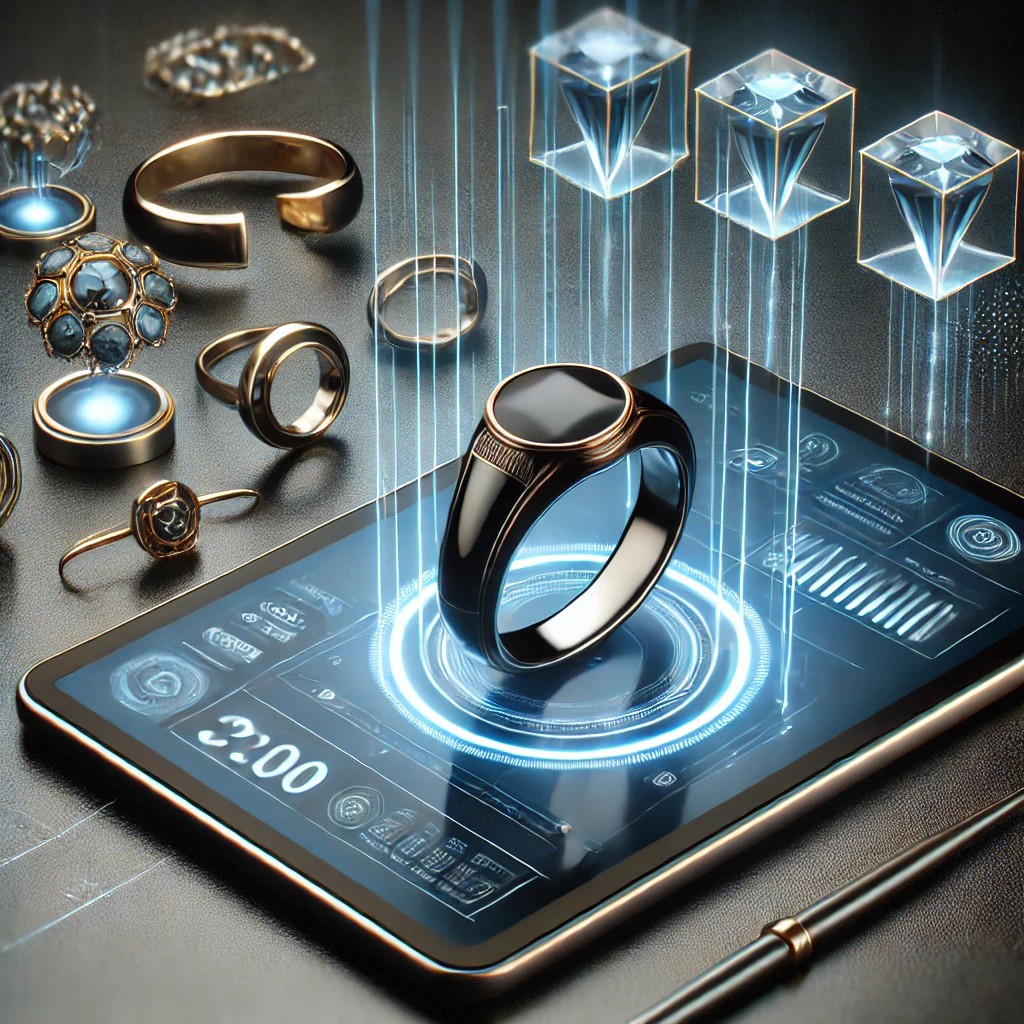The jewelry industry, known for its meticulous craftsmanship and age-old traditions, is currently experiencing a technological renaissance. Innovative technologies like 3D printing, augmented reality (AR), artificial intelligence (AI), blockchain, and advanced materials have redefined how jewelers design, create, market, and sell their products. This revolution not only enhances creativity and personalization but also improves sustainability and customer experiences.
In this guest post, we explore how advanced technology is reshaping the jewelry industry, from streamlined production processes and unique design capabilities to innovative customer engagement practices.
- 3D Printing: Reshaping Design and Customization
3D printing has emerged as one of the most transformative technologies in jewelry manufacturing. Designers can digitally craft highly intricate jewelry pieces previously impossible through traditional hand-crafting methods. With 3D printing, jewelers can quickly prototype designs, enabling rapid adjustments and customer customization.
Customers today value personalization and uniqueness more than ever. Using 3D printing, jewelers effortlessly produce personalized jewelry pieces tailored to each customer’s preferences, ensuring an emotionally significant and one-of-a-kind product. By reducing production time and cost, 3D printing empowers jewelers of all sizes to experiment freely, leading to greater innovation and diverse offerings.
- Augmented Reality (AR): Enhancing Customer Experience
Augmented reality has transformed how customers engage with jewelry brands online and offline. AR applications allow potential buyers to virtually try on jewelry pieces using smartphones or tablets, dramatically improving the online shopping experience. Customers no longer have to guess how jewelry will look; they can confidently explore products digitally, enhancing purchase satisfaction and reducing returns.
Luxury and niche jewelry brands have embraced AR technologies to bridge the gap between physical stores and e-commerce. Innovative brands like Bikerringshop leverage digital experiences to showcase unique, bold jewelry pieces, offering a seamless and immersive buying experience worldwide.
- Blockchain Technology: Ensuring Authenticity and Ethical Sourcing
Blockchain, famous for underpinning cryptocurrencies, is increasingly significant in the jewelry industry for guaranteeing authenticity and transparency. Diamond and precious metal tracking via blockchain offers clear, immutable proof of origin, ensuring that products are ethically sourced and conflict-free.
This technology greatly benefits consumers concerned with ethical consumption, providing detailed transparency. Jewelry brands adopting blockchain enhance their credibility, allowing customers to purchase products confidently, knowing they align with ethical and sustainable standards.
- Artificial Intelligence (AI): Revolutionizing Jewelry Retail
Artificial Intelligence is revolutionizing jewelry marketing and retailing. AI-powered algorithms analyze customer behavior, preferences, and purchase history, enabling jewelry brands to offer hyper-personalized recommendations. Intelligent algorithms also help forecast market trends, ensuring jewelers remain ahead of fashion curves and consumer demands.
Moreover, chatbots powered by AI dramatically enhance customer service, providing instant responses to inquiries and personalized buying advice around the clock. This boosts customer satisfaction, loyalty, and brand affinity significantly, contributing positively to long-term growth and profitability.
- Smart Jewelry: Integrating Technology and Fashion
One exciting trend emerging at the intersection of fashion, technology, and jewelry is “smart jewelry.” Pieces like smart rings, bracelets, and necklaces seamlessly blend style with technology, offering functionalities such as health monitoring, contactless payments, and communication capabilities.
As technology shrinks and becomes wearable-friendly, the smart jewelry market is expected to boom further. Consumers are now looking for pieces that not only look great but also serve practical daily-life functions, making wearable technology an attractive growth opportunity for forward-thinking jewelers.
- Advanced Materials: Creating Durable and Unique Pieces
Advanced materials like titanium alloys, carbon fiber, ceramic composites, and lab-grown gemstones have transformed the jewelry industry, allowing for more durable, lighter, and visually stunning pieces. Innovations in material science offer jewelers flexibility in designing distinctive items that traditional metals cannot achieve.
Lab-grown gemstones are particularly significant. These stones are chemically identical to natural gems yet environmentally friendly, affordable, and ethical. As sustainability becomes a priority among consumers, the demand for lab-grown diamonds and gemstones continues to skyrocket.
- Digital Marketing & E-commerce Expansion
Technology continues to redefine jewelry marketing. Social media platforms like Instagram, Pinterest, and TikTok have become central to promoting jewelry, especially among younger audiences. Brands leverage these platforms for storytelling, influencer marketing, and showcasing their collections in visually appealing ways, often combining digital ads with innovative technology, such as AR and VR experiences.
Moreover, e-commerce growth is reshaping jewelry retail. The rise of mobile shopping and online marketplaces demands jewelers adopt robust digital strategies. Businesses leveraging SEO, engaging content, and responsive websites gain significant advantages over competitors, effectively attracting and retaining digitally-savvy consumers.
- Sustainability Through Tech Innovation
Technology aids the jewelry industry’s shift toward sustainability by reducing waste, enhancing efficiency, and promoting transparency. Innovations like recycling precious metals, utilizing renewable energy in production, and adopting precision manufacturing significantly minimize environmental impacts.
Brands that successfully integrate technological solutions into sustainability strategies stand to benefit immensely, as modern consumers increasingly prefer brands demonstrating genuine environmental responsibility.
The Future of Jewelry: Technology-Driven Innovation
The jewelry industry stands at the brink of a digital transformation that promises endless possibilities. Technology is not only enhancing design capabilities and customer experiences but also driving ethical transparency, sustainability, and personalization, shaping an industry increasingly aligned with contemporary consumer values.
Innovative jewelry brands that adapt quickly to these technological advancements will undoubtedly lead the market. Whether it’s through embracing 3D printing, AR-enhanced shopping experiences, blockchain authentication, AI-driven personalization, or smart wearable jewelry, the future belongs to those who seamlessly blend technology, creativity, and customer-centric innovation.
In conclusion, technology’s revolutionary impact on jewelry is undeniable, fostering creativity, sustainability, and customer satisfaction. Jewelers embracing this digital shift position themselves at the forefront of a vibrant and rapidly evolving market.

































